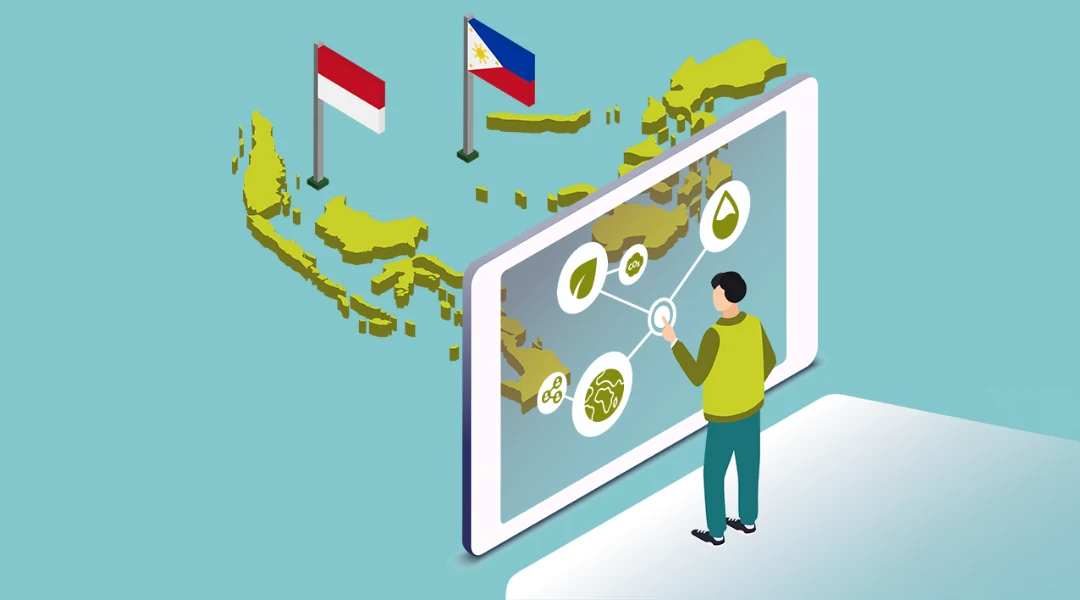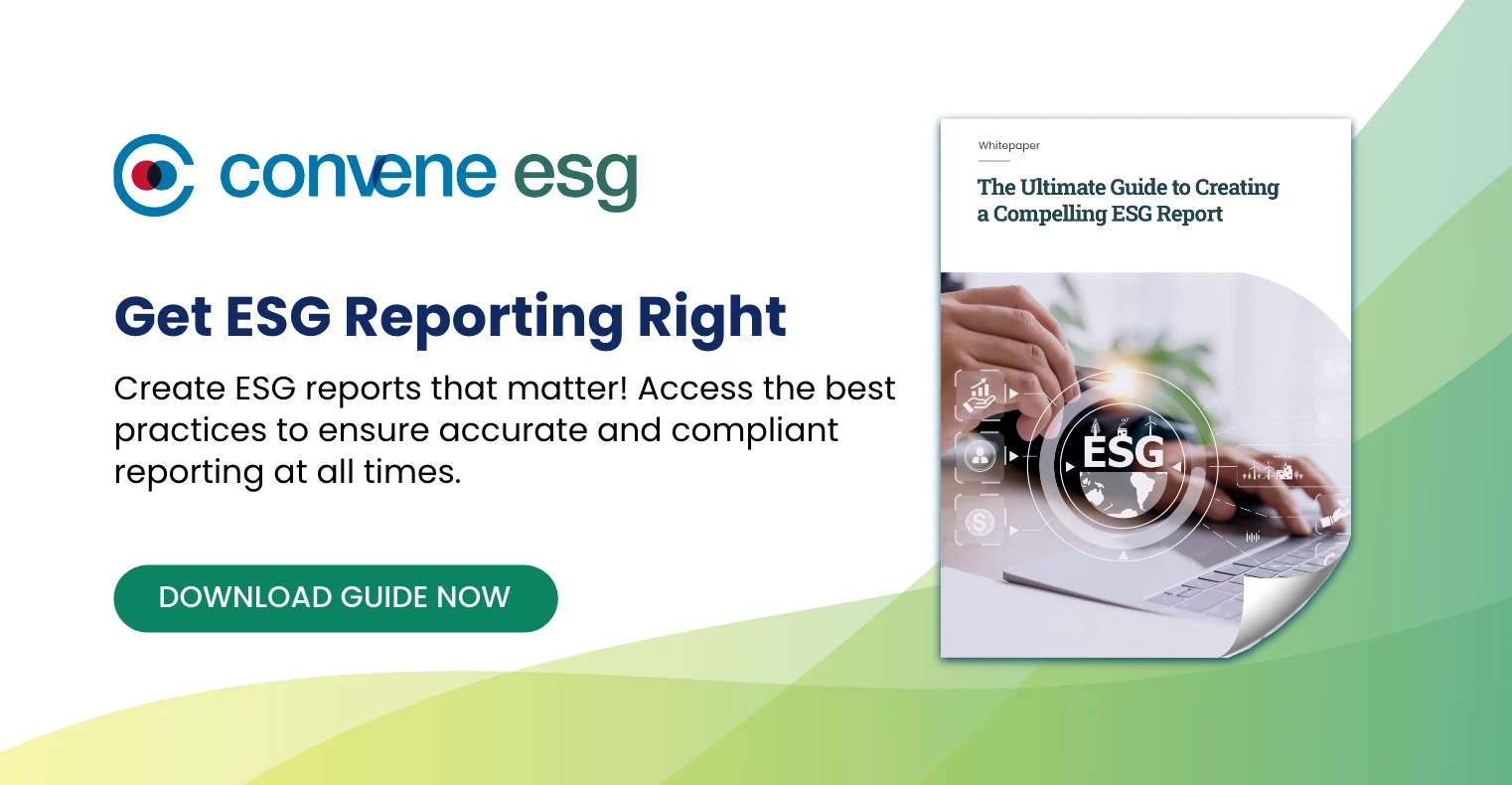Environmental performance has evolved from being a voluntary aspect of corporate social responsibility (CSR) to being a key part of business strategy. This is especially important for countries that are sensitive to climate change and positioned at the frontlines of the climate crisis.
One of these is the Philippines, where there is an average of 20 typhoons every year, along with heavy rainfall and flooding. This puts a lot of pressure on critical infrastructure and resource-dependent sectors.
Indonesia, with over 60% of its population living in coastal areas, faces sea-level rise and forest degradation that have made it one of the top global greenhouse gas (GHG) emitters. They deal with more and more severe weather events and a huge loss of biodiversity.
The pressures have pushed governments and companies in Indonesia and the Philippines to address environmental, social, and governance (ESG) issues in their priorities. These are now closely tied to compliance and ESG reporting, where companies are required to disclose how their decarbonisation and sustainable practices align with regulations and investor expectations. In this article, we’ll also discuss the emerging approaches, especially technology, that are supporting these efforts.
The Current State of Environmental Compliance in Indonesia and the Philippines
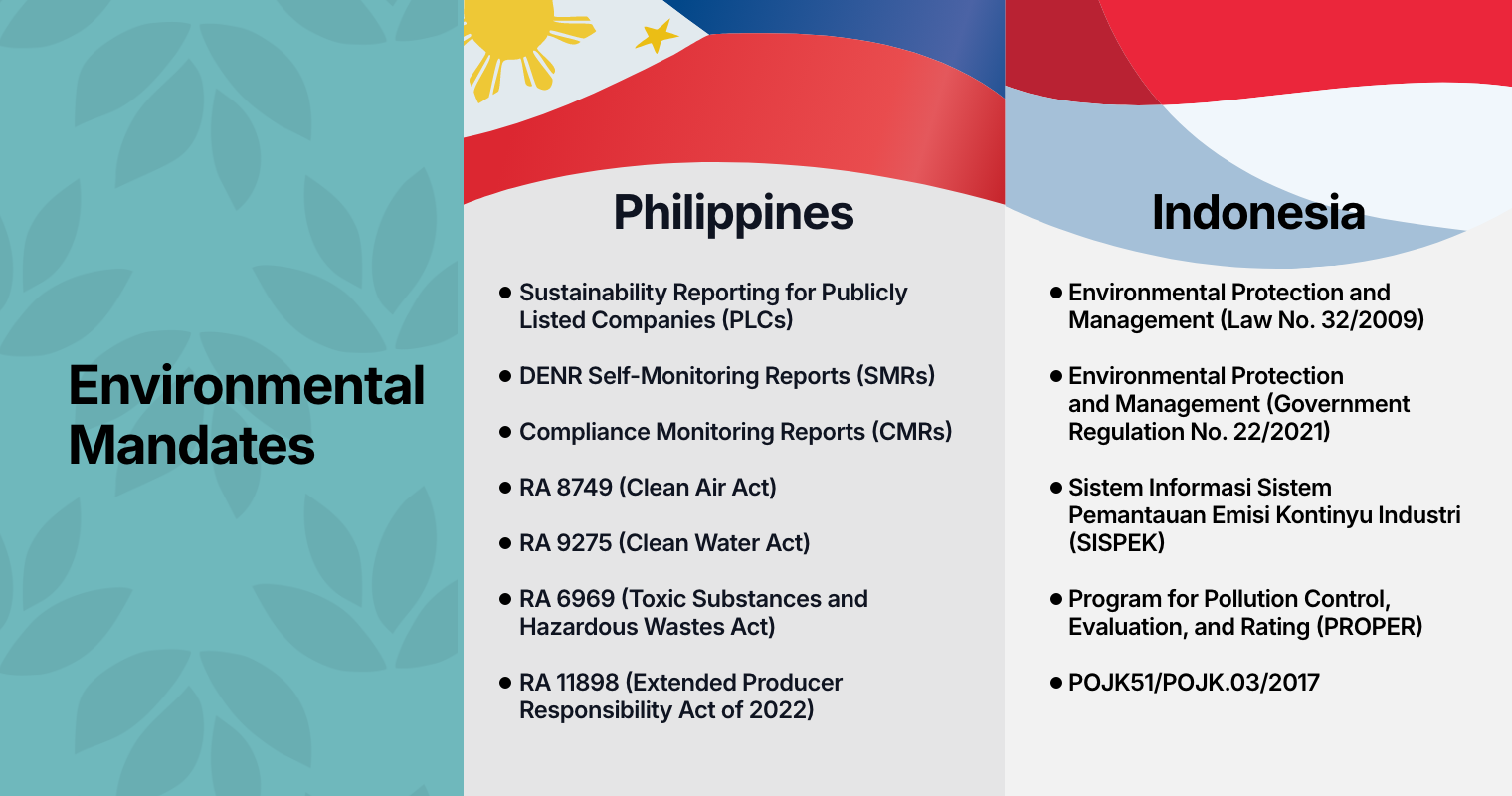
Environmental compliance is built on standards and rules, which are laid out for companies to operate without harming the environment, be it land, air, or water. It links environmental responsibility with legal requirements to hold businesses accountable.
Today, environmental regulations are becoming stricter in both Indonesia and the Philippines, focusing more on how companies decarbonise, manage waste, and ensure sustainable resource usage. With the implementation of mandatory disclosures, companies are expected to align with environmental laws and the broader ESG expectations.
Environmental Regulations and Sustainability Reporting in the Philippines
In the Philippines, businesses must comply with national environmental laws enforced by the government, especially the Department of Environment and Natural Resources (DENR):
- Sustainability Reporting for Publicly Listed Companies (PLCs): Identified companies are required to disclose their environmental and social risks and practices alongside financial and sustainability initiatives performance. It aligns with global frameworks such as the Global Reporting Initiative (GRI) and Sustainability Accounting Standards Board (SASB).
- DENR Self-Monitoring Reports (SMRs): Businesses with an Environmental Compliance Certificate (ECC) are required to submit SMRs quarterly, under the Presidential Decree 1586 (Environmental Impact Statement system) and DENR Administrative Order No. 27, series of 2003. These reports cover compliance with ECC, emissions, waste management, and resource consumption.
- Compliance Monitoring Reports (CMRs): These are filed semi-annually to track how well companies are sticking to their environmental management plans, including permits and performance monitoring.
- Clean Air Act (RA 8749): This law sets limits on harmful emissions from industries to improve air quality.
- Clean Water Act (RA 9275): It regulates pollution and sets standards for wastewater production to protect water resources.
- Toxic Substances and Hazardous Wastes Act (RA 6969): This law governs the handling, storage, and disposal of toxic materials to prevent harm to the environment.
- Extended Producer Responsibility Act of 2022 (RA 11898): It holds businesses accountable for their product packaging waste management and recycling and reusing practices.
Environmental Regulations and Sustainability Reporting in Indonesia
Indonesia’s Ministry of Environment and Forestry (MOEF) handles the enforcement of these laws and regulations set by the government:
- Environmental Protection and Management (Law No. 32/2009): This law requires businesses to conduct Environmental Impact Assessments (AMDAL) and submit reports for environmental management. It also requires businesses to implement environmental management and monitoring efforts (UKL-UPL).
- Environmental Protection and Management (Government Regulation No. 22/2021): The law mandates Indonesian companies to take immediate action to contain pollution by setting pollution control standards and integrating them with the Online Single Submission (OSS) system for streamlined business processes.
- Sistem Informasi Sistem Pemantauan Emisi Kontinyu Industri (SISPEK): This regulation, which translates to the Continuous Industrial Emission Monitoring Information System, requires industries to monitor emissions in real-time to make sure the pollution levels are tracked and controlled.
- Program for Pollution Control, Evaluation, and Rating (PROPER): A public disclosure program, ensuring industrial compliance and offering a rating system for companies’ environmental performance and degree of compliance.
- POJK51/POJK.03/2017: POJK stands for Peraturan Otoritas Jasa Keuangan, or Indonesia’s Financial Services Authority regulation. This requires companies and institutions in the finance sector to adopt sustainable finance principles and establish sustainability reports.
Apart from that, Indonesia’s energy sector is undergoing a significant transformation with the support of the Asian Development Bank (ADB) through the Sustainable and Inclusive Energy Program. It focuses on improving fiscal sustainability and private investments, and renewable energy solutions to help decarbonise emissions.
To address the growing demands of environmental compliance, accurate data and systematic presentation of sustainability performance must be established. This is where ESG reporting tools can provide support and advance companies to meet and exceed these standards.
How can ESG tools manage environmental compliance?
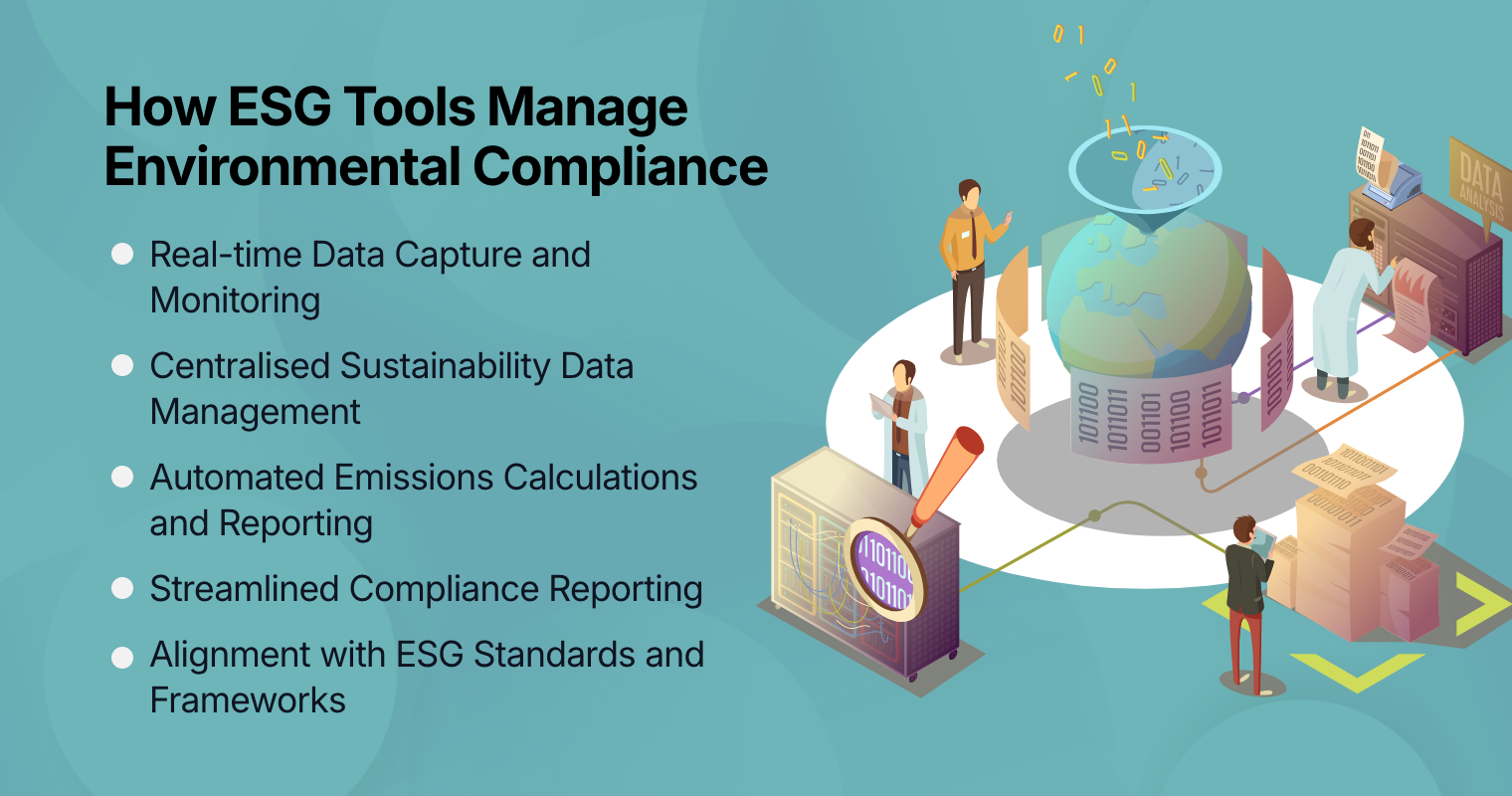
The evolving complexity of reporting requirements and the growing volume of data each year are only some of the challenges companies face with compliance. ESG tools address these needs with consistency, speed, and transparency in the overall process. These digital tools in software and platforms are increasingly relied upon, especially in Indonesia’s sustainability transformation, and are already showing potential in Southeast Asia and globally.
Real-time Data Capture and Monitoring
ESG tools integrate with monitoring systems to capture environmental data in real time. This lets companies consistently and accurately track emissions, water use, energy consumption, and waste production. The system also guarantees compliance with local regulations. For example:
- In Indonesia, the SISPEK system automatically captures emissions data and feeds it into government systems for compliance reporting.
- In the Philippines, ESG tools can integrate with local monitoring systems to provide real-time updates on air and water quality. This helps in the timely submission of Self-Monitoring Reports (SMRs) and Compliance Monitoring Reports (CMRs).
Centralised Sustainability Data Management
ESG platforms go beyond collecting and real-time tracking of data. They also give companies a single place to manage sustainability data for the long term. Serving as a central repository, it makes it easier to access historic records, spot industry trends across the years, and benchmark performance against other businesses. Having everything consolidated allows companies to draw data-driven insights to improve reporting and guide ESG strategies and decisions.
Automated Emissions Calculations and Reporting
Environmental compliance requires accurate emissions calculations of scopes 1, 2, and 3 emissions. ESG reporting tools, such as carbon calculators, automate this process by using recognised conversion factors that translate business activities into their corresponding emissions, tailored to each sector. Most ESG software also features supplier engagement modules that collect data from supply chains to track their indirect scope 3 emissions and decarbonisation efforts. These tools allow businesses to generate reliable reports with minimal manual input and less risk of human error.
Streamlined Compliance Reporting
ESG reporting tools help businesses automate compliance reporting to keep submissions timely and accurate. Many platforms are also designed to integrate with regulatory systems through secure online channels or submission portals, like Indonesia’s OSS and the Philippines’ DENR systems. This enables companies to transmit reports and data directly to regulatory databases with little human effort. By using pre-built templates and automated data inputs and processes, companies can focus on fulfilling their sustainability goals instead of worrying about meeting compliance deadlines.
Alignment with ESG Standards and Frameworks
International ESG frameworks such as the GRI, SASB, and the Task Force on Climate-related Financial Disclosures (TCFD) recommendations are industry standards for sustainability reporting. Digital ESG reporting tools help companies align with these standards and frameworks with the pre-built templates, pre-mapped indicators from the automated and consolidated data. This ensures the same data is fed into both local compliance reports and global frameworks. With this process, companies meet regulatory requirements and expectations for transparency and sustainability.
In line with this, Indonesia is piloting a national green taxonomy. Meanwhile, the Philippines is continuously advancing its Sustainable Finance Roadmap through an inter-agency collaboration. With the demand for reliable data in assessments, screening investments, and issuing green bonds, ESG tools are becoming more indispensable.
ESG Reporting Tools in Action: Examples from Indonesia and the Philippines
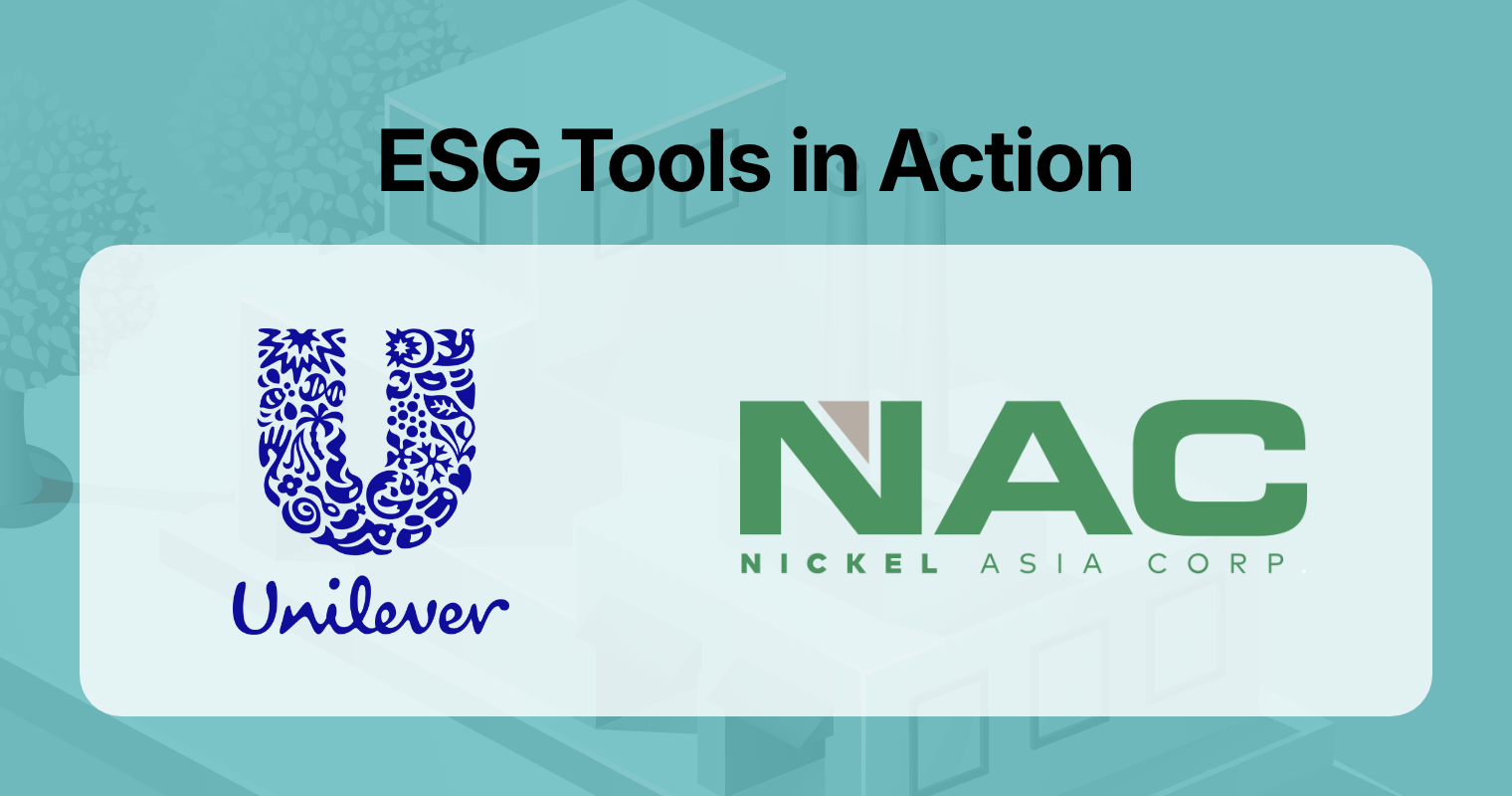
Businesses in both Indonesia and the Philippines are turning to ESG tools to transform their sustainable processes and operations. Cited below are two companies that have digitised their ESG data and reporting workflows with ESG software—ultimately, advancing their commitment to environmental responsibility.
Unilever (Indonesia)
Indonesia has stepped up its ESG reporting with the introduction of the SPE-IDXnet, a collaborative system with the Indonesia Stock Exchange (IDX) for ESG compliance and reporting. In the IDX board, Unilever Indonesia ranks among the top 10 companies with the lowest ESG risk. It was able to reduce its carbon footprint by 50% and is targeting net zero emissions by 2039.
A key driver of this progress is the use of ESG tools, particularly a centralised and cloud-based platform that unifies data from multiple sources. This system improved the company’s transparency and consistency in reporting, further improving its ESG score and performance.
Nickel Asia Corporation (Philippines)
Nickel Asia Corporation (NAC) boosted its ESG performance by adopting ESG reporting software to streamline its reporting processes. Having struggled with inconsistencies and inefficiencies in the past, they have now shifted to Convene ESG’s technology (now Presgo) for automated data collection and analysis from multiple sources.
Moreover, NAC has since been equipped with the carbon accounting tool that accurately calculates its scopes 1, 2, and 3 emissions. Equipped with more ESG tools, NAC levelled up to real-time reporting and scalable ESG efforts to consistently align with sustainability goals and regulations.
Adopting ESG Reporting Tools for Long-Term Sustainability
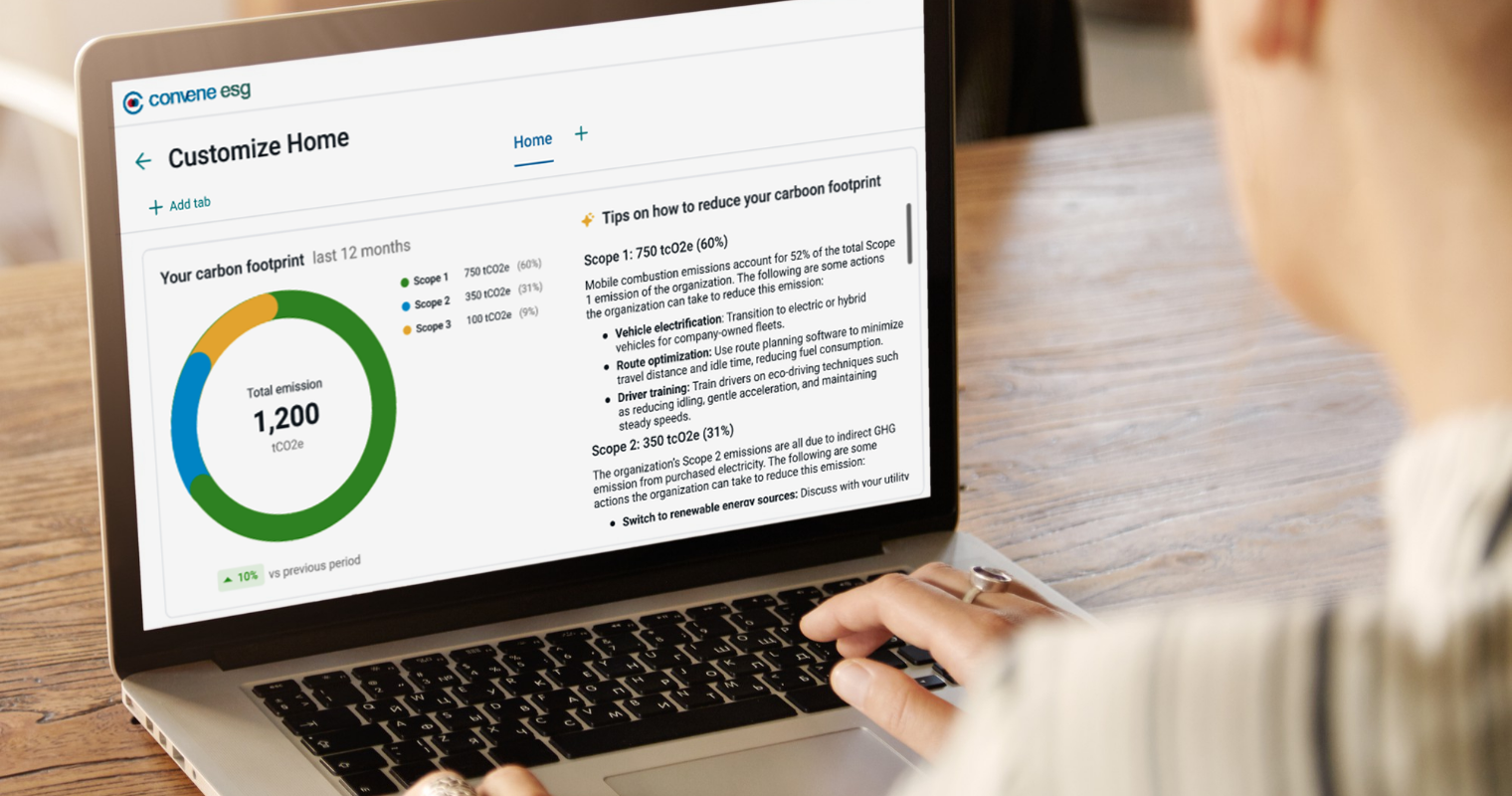
Environmental compliance in Southeast Asia is transitioning from static annual reports to dynamic, data-driven systems. Shifting to advanced ESG technology is about long-term value — unlocking green finance, improving operational resilience, and building reputational trust.
ESG reporting software like Convene ESG equips companies with tools that embed sustainability into their daily operations, supply chains, and investor communications. It also offers these features:
- Centralised Data & Automation: Automate the collection of years’ worth of ESG data, ensuring accuracy and completeness. All this data is stored securely in one location, making benchmarking and reporting easier.
- Strategic Oversight: Use dashboards to track ESG progress, compare with peers, and monitor your reporting journey based on your ESG targets and organisation’s objectives.
- AI-Driven Insights: Utilise AI to detect patterns in ESG data, flag anomalies and underperformance, forecast ESG risks and opportunities, and turn predictive insights into actions.
- Future-Ready Reporting: Create reports with flexible templates that adjust to changing ESG needs and with the help of ESG experts.
- Compliance & Expert Support: Get expert advice with customisable templates to meet all necessary reporting requirements and align with local and global standards and regulations.
- Robust Data Governance: Boost data security and traceability throughout your ESG journey by accessing data histories and tracking activity for full transparency.
- Carbon Accounting with built-in calculator: Use the carbon calculator to measure scope 1, 2, and 3 emissions and integrate emission factors for precise calculations.
As countries focus on climate change and environmental protection, companies investing in ESG tools early will lead the transition toward a more sustainable economy.
Experience the impact of ESG tools firsthand. Book your demo now!
Pat is a Content Writer, focusing on informative and purposeful content for Convene ESG. She has written for sustainable living and art exhibitions, and took part in research and communication projects linked to the UN's Sustainable Development Goals, further diving her into sustainability and ESG values. Outside of marketing and content, she explores new subjects in film, drawing, and occasional overthinking.
